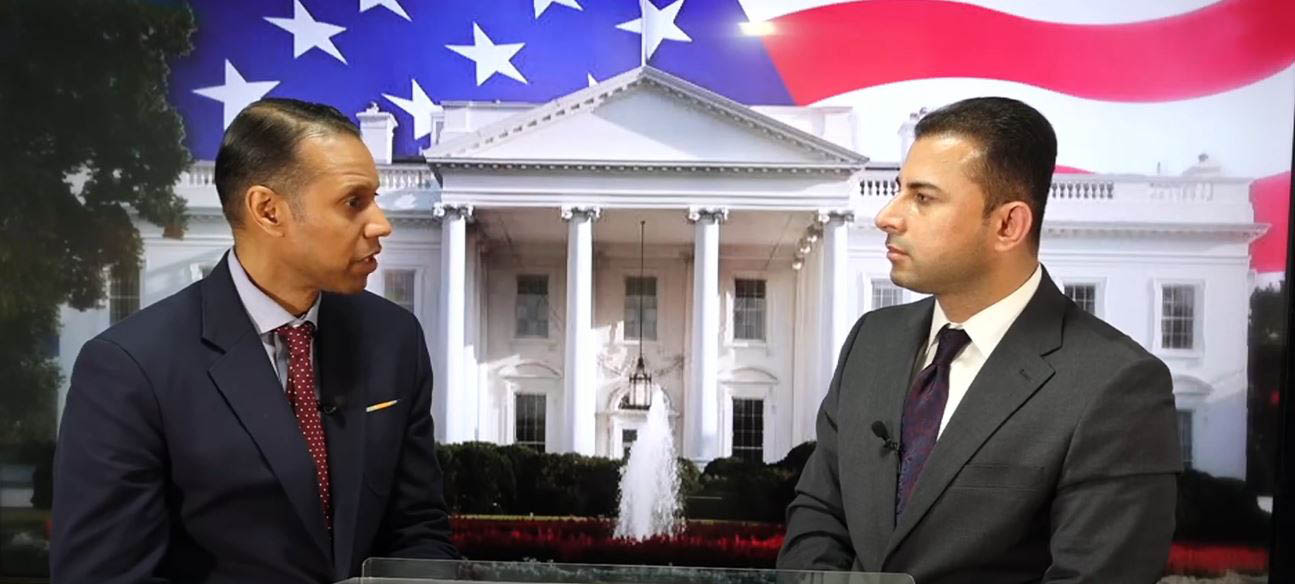APIKUR Pushes for Immediate Action on Kurdistan Oil Exports
“We cannot predict the exact date, but we are confident that swift action following the summit can lead to rapid progress,” Myles Caggins said.

By Ahora Qadi
ERBIL (Kurdistan24) – The Association of the Petroleum Industry of Kurdistan (APIKUR) is calling for urgent steps to reopen the Iraq-Turkey pipeline, identifying it as the top priority in ongoing talks with Baghdad and Erbil, according to spokesman Col. Myles B. Caggins III.
In an exclusive interview with Kurdistan 24, Caggins confirmed that negotiations are intensifying. “We are urging the Iraqi Minister of Oil to convene all parties immediately after the Arab Summit,” he said, stressing that resuming Kurdish oil exports would boost Iraq’s economy and fulfill the shared objectives of Prime Minister Masrour Barzani and Prime Minister Mohammed Shia al-Sudani.
Three of APIKUR’s eight member companies are American, and the organization is working closely with both the Kurdistan Regional Government and Baghdad. Discussions revolve around settling outstanding payments—nearly $1 billion owed to companies—clarifying future revenue structures, and meeting Article 12 of Iraq’s budget law, which requires an international consultant to audit production and transport costs.
Caggins noted that diplomatic momentum is building around Prime Minister Barzani’s upcoming visit to Washington. “The State Department in Washington, as well as US teams in Erbil and Baghdad, are monitoring the file closely,” he said.
While no timeline has been confirmed for a final agreement, APIKUR has clearly outlined four conditions for resuming exports and stated its readiness to act immediately once written agreements are signed.
“We cannot predict the exact date, but we are confident that swift action following the summit can lead to rapid progress,” Caggins concluded.

Push for Resolution After 14-Month Stalemate
Oil exports from the Kurdistan Region have remained suspended since March 2023, following a ruling by the International Chamber of Commerce in Paris. That verdict compelled Turkey to halt crude exports via the pipeline on the grounds that Baghdad held exclusive authority over such exports.
Since then, the Kurdistan Region has lost access to global markets for nearly 450,000 barrels per day of crude, triggering economic strain and budgetary challenges. Repeated rounds of negotiations have failed to produce a breakthrough, largely due to disputes over revenue-sharing mechanisms and production contract terms.
On Tuesday, a senior delegation from the Kurdistan Region’s Ministry of Natural Resources visited Baghdad for trilateral negotiations with Iraq’s Ministry of Oil and APIKUR representatives. The goal, according to Iraqi MP and Oil and Gas Committee member Sabah Sobhi, was to find a viable framework for reactivating exports through a federally supervised system.
Sobhi noted that oil companies operating in the Kurdistan Region remain unconvinced by Baghdad’s proposed financial models. “These companies have rejected the current terms offered by the Ministry of Oil,” he said, citing a lack of profitability guarantees and contractual clarity.
APIKUR Pushes for Immediate Action on Kurdistan Oil Exports
— Kurdistan 24 English (@K24English) May 15, 2025
“We cannot predict the exact date, but we are confident that swift action following the summit can lead to rapid progress,” Myles Caggins said.
🔗 https://t.co/dtwEfX6VbR pic.twitter.com/bdFXfjdsm6
